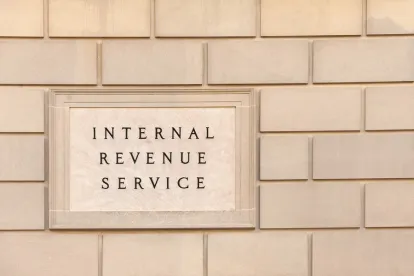The IRS Office of Chief Counsel announced in Issue Number IR-2020-130 that it will be making a time-limited settlement offer to certain taxpayers with pending docketed Tax Court cases involving such conservation easement transactions, offering finality to the affected taxpayers. The settlement offers do not address those cases that are currently pending in Examination or IRS Appeals.
The announcement says that IRS recognizes the important role of conservation easement deductions in incentivizing land preservation for future generations. However, the IRS also stated that “ending these abusive schemes remains a top priority of the IRS” and included a firm statement from IRS Commissioner Chuck Rettig that “[t]he IRS will continue to actively identify, audit and litigate these syndicated conservation easement deals as part of its vigorous and relentless effort to combat abusive transactions.” As we wrote in our past GT Alert on this subject, the IRS identified syndicated conservation easement transactions as listed transactions in 2017 subject to additional reporting, named them as one of the annual “Dirty Dozen” tax scams, and indicated that these transactions would be closely scrutinized.
IRS Standardized Settlement Offer
Taxpayers eligible for the time-limited settlement offer will be notified by letter, which will state the applicable settlement terms. The settlement offers require concession of all of the income tax benefits claimed by the taxpayer and imposes an accuracy-related penalty, as described below. Among the key terms of the settlement offers are:
-
The deduction for the contributed easement is disallowed in full.
-
All partners must agree to settle, and the partnership must pay the full amount of tax, penalties, and interest before settlement.
-
“Investor” partners can deduct their cost of acquiring their partnership interests and pay a reduced penalty of 10% to 20% depending on the ratio of the deduction claimed to the partnership investment.
-
Partners who provided services in connection with any Syndicated Conservation Easement transaction must pay the maximum penalty asserted by IRS (typically 40%) with no deduction for costs.
IR-2020-130 states that taxpayers should not expect better settlement terms for their docketed cases. The settlement initiative takes into account the fact that the U.S. Tax Court has held in the government’s favor in many syndicated conservation easement cases, including several recent opinions and orders.
This syndicated conservation easement resolution specifically states that it should not be deemed to have any impact on the potential criminal exposure, investigation and/or prosecution of any individual or entity that participated in or assisted or advised others in participating in a syndicated conservation easement transaction. It also points out that the IRS has created two new offices that are actively investigating these transactions: the Promoter Investigation Coordinator and the Office of Fraud Enforcement. Therefore, one can assume that these more aggressive actions will continue unabated, at least for now.
The IRS recommends that taxpayers consult with independent counsel, meaning a qualified advisor who was not involved in promoting the transaction or one handpicked by a promoter to defend it, when deciding whether to accept the offer. This has become a particularly important issue with IRS executives recently announcing that auditors will inquire into whether there is a conflict of interest for the taxpayer’s representative and, if so, whether there is a written waiver of that conflict. The IRS intends to issue an Information Document Request (IDR) for production of the waiver in the audit.
Conclusion
The IRS continues to devote significant resources to aggressively pursuing partnerships and investors who made donations of conservation easements in syndicated transactions. At the present time the IRS has not addressed whether there will be a settlement initiative available to any taxpayers who are not currently before the Tax Court.
Those who have either invested in or acted as a material advisor on a syndicated conservation easement transaction should contact a tax attorney experienced in such matters.




 />i
/>i

